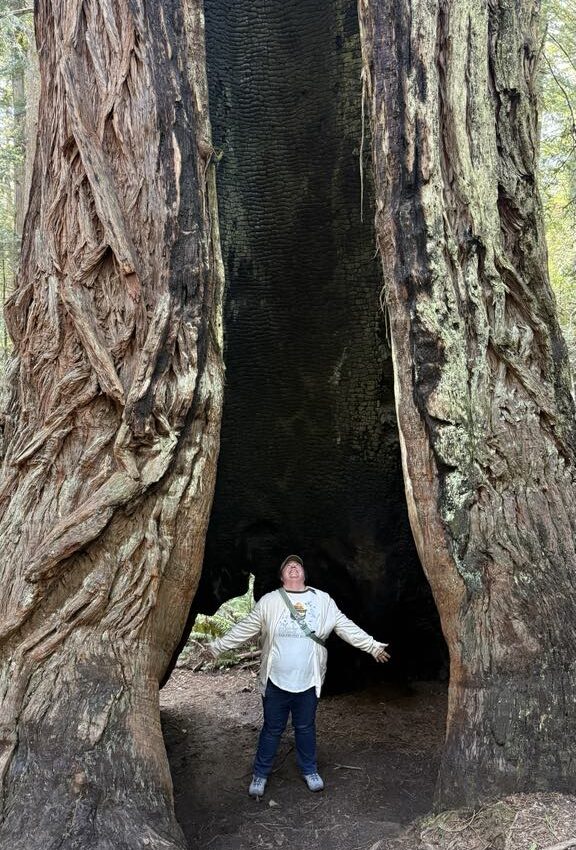It always startles me. I always feel its vibrating, out-of-place call. Usually, I hear it just before or during rain or snow. I have heard it off and on for the 13 years I’ve lived in this apartment.
I never hear click-clack obvious progress. I never hear squeaky wheels or brakes. Believe me, I’ve tried. But I must need to be reminded of travel— an engine and an agenda.
I say, if I’m not alone, “Hear that? It’s a train whistle.”
But no one ever believes me.
It sounds like a truck’s air horn but longer. It’s not the usual harmonies of train chords. It’s a single note— a lingering C sharp in the middle octave. And never just one blast like you’d highway quick-hand to alert someone inattentive. This is the herald of something hurtling—the harbinger of long or fog or flying.
I say, if I’m not alone, “Clouds change what we hear.”
But no one ever believes me.
“Perhaps only an attentive author can hear and appreciate this,” I say when I am alone.
I sometimes believe me.
It is an insistent minute or two of more important and breathless air aura. I never manage to count the number of trumpeting C sharps. I never think about doing that until the sound is gone.
There are no train stations in my small town. But there are tracks and sometimes, I hear normal train tetrads. I don’t know trains in my bones or dreams. There doesn’t seem to be a schedule. Except I never hear it late at night. How do starlit skies or closed windows or chirping crickets change what we suspect?
Do I hear discipline or magic? What beckons? What becomes?
I never remember to listen harder on heavy days. I drop what I’m doing or thinking or listening to. If I’m not outside, I rush to open doors or windows. It’s an old sound; the gist of a destination that haunts and arouses.
Just today, it fractures the humid June air. I smile and the dust cloth falls from my hand. I almost know I will forget where and have to search for it later. Something separates.
Are there people on that train?
I am not in its way but I am in its warning. Or its longing.
Is it a train? Can I know if I become even more still? Can I know if I pick up a tablet and pen or quietly-clicking keys? Focus! Quick, before this distraction fades…
Nancy Scott’s over 750 essays and poems have appeared in magazines, literary journals, anthologies, newspapers, and as audio commentaries. She has a chapbook, The Almost Abecedarian (on Amazon), and won First Prize in the 2009 International Onkyo Braille Essay Contest. Recent work appears in Disabilities Studies Quarterly, Kaleidoscope, One Sentence Poems, Philadelphia Stories, and Wordgathering. She also loves NASA.



